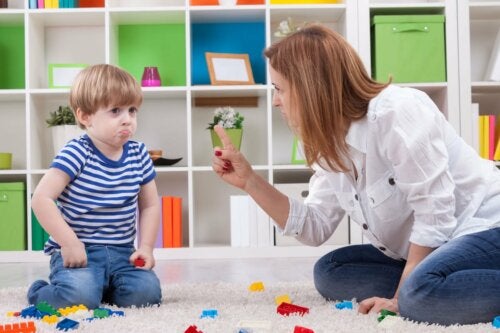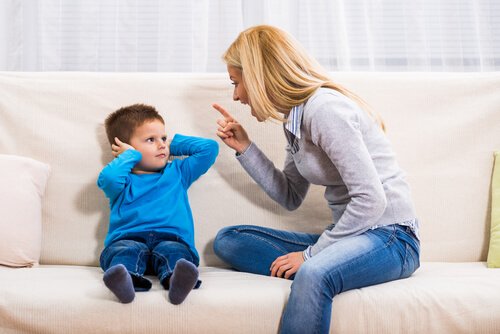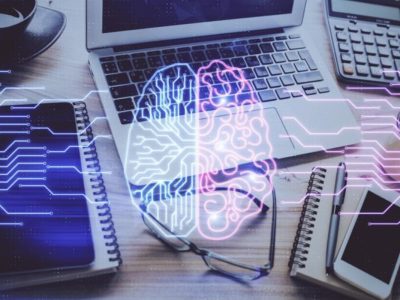The effect of punishing children is a much-debated topic, especially in recent years. It’s the foundation of the most traditional child-rearing system and doesn’t only happen within a family but also in educational environments and many other areas of a community.
The effectiveness of this method is what makes it confusing. This is because the effect of punishment on children is immediate, as it “persuades” them to do or not to do something. The thing is that this is just transient. Thus, it doesn’t take away the motivation for certain behaviors, meaning they’ll still occur despite the punishment.
As you can see, intimidation tactics may momentarily give parents a break. However, this method is ethically questionable and also illegal in many cases. In addition, it doesn’t work in the end.
“One thing I know for sure about raising children is that every single day a kid needs discipline. But also every single day, a kid needs a break.”
-Anne Lamott-
The effects of punishment on the brain
According to Dr. Jorge Cuartas, physical punishment causes atypical development in children’s brains. It increases cortisol levels at a stage in which the brain structure is still forming and, thus, changes the prefrontal cortex.
Likewise, a study published in the Journal of Aggression, Maltreatment, and Trauma points out that there’s a relationship between severe punishment and a reduction in children’s cognitive abilities. Apparently, it has a greater impact on children between the ages of five and nine.
It applies not only to physical punishment as such but also to high-impact verbal and psychological aggression, which have a similar effect to hitting.
Also, note that not one single study reveals any advantages to this type of punishment. Instead, most studies show that severe punishment isn’t effective and is actually quite harmful.
The effects of punishing children
Punishment activates the survival instinct, especially in children, and they only see three alternatives to it: to attack, flee, or become paralyzed. This happens automatically, without any reflection or decision.
Physiologically, there’s an increased secretion of cortisol and adrenaline, which limits their ability to think, while increasing the intensity of some emotions such as anger or fear. Under these conditions, functions such as critical thinking and reasoning diminish. Thus, there can be no learning.
Other intense and confusing emotions usually appear after being the victim of punishment. Sometimes, there’s guilt, remorse, or resentment. Likewise, the child thinks they’re bad or that there’s something wrong with them. In the meantime, they don’t break down or fully understand what they did wrong, why it’s wrong, and why they shouldn’t do it in the future.

Punishing children doesn’t have to be severe
The effect of punishment isn’t only negative when the sanction is severe or violent, but also in other cases. Psychologist Rafael Guerrero stated that the very nature of punishment is questionable. Apparently, parents punish their child to get them to learn and improve certain behaviors. However, what it actually does is traumatize them.
Many adults think that the only type of abuse that exists is hitting, yelling, and humiliating. However, one can harm a child in many other ways. By sending them to a corner in order to make them “think about what they did”, supposedly. The thing is that they probably won’t. In fact, most adults wouldn’t either. The only thing they’ll think about is how to get out of the situation as soon as possible.
As you can see, the child won’t gain any awareness of the behavior that led to the sanction. Instead, authoritarianism, the helplessness in the face of it, and the impact of the punishing figure, will remain fixed in their memory. They may stop doing what they were punished for but only due to the pressure of circumstances, not because they’ve learned to behave.
Perhaps one of the most valuable lessons an adult can teach a child is that mistakes are conducive to learning. It’s easier and quicker to “train” a child than to nurture their conscience. However, as you’ve seen, the effect of punishment is short-lived, while a well-grounded conscience lasts forever.
The post How Punishing Children Affects Their Brain appeared first on Exploring your mind.



















Comments